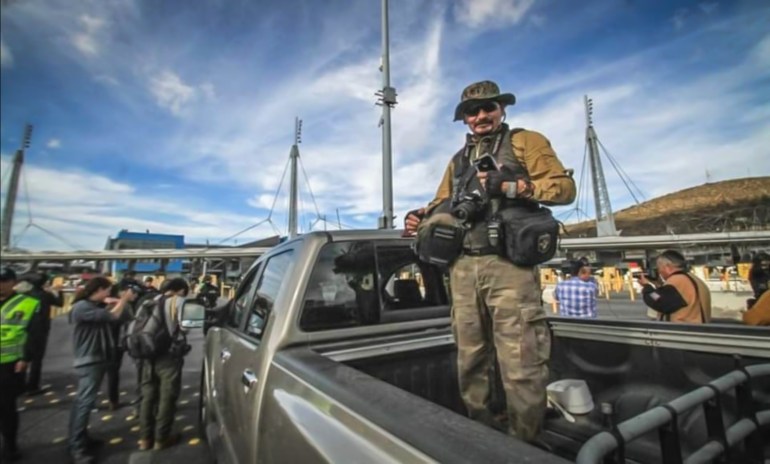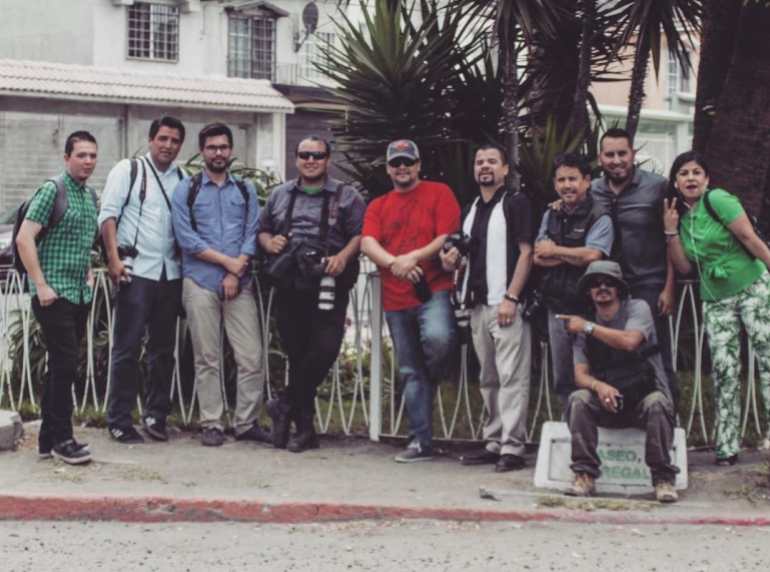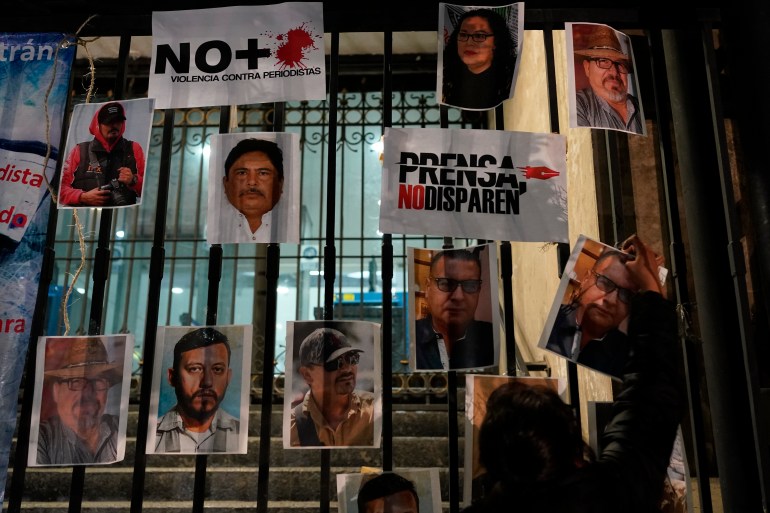Why Murder in Mexico Is Rising Again
Los Angeles, California –Against a backdrop of increasing violence, human rights violations and impunity in Mexico, attacks confronting journalists are spiking, with 4 killed terminal month solitary.
On January 31, 3 armed men reportedly shot Robert Toledo, a videographer for Monitor Michoacan, as he prepared to film an interview west of Mexico City.
Days before, reporter Lourdes Maldonado Lopez was shot dead in Tijuana – the same city where freelance photographer Margarito Martinez, who documented crime scenes, was fatally shot on January 17.
And before final calendar month, Jose Luis Gamboa Arenas, director of the news site Inforegio in Veracruz, a notoriously violent and decadent region, died from stab wounds.
Two more journalists in Mexico had close calls in Jan: Ane reporter was shot at and escaped, and another was wounded in a pocketknife attack, according to Jan-Albert Hootsen, the Mexico representative for the Commission to Protect Journalists.

"We've seen what's very likely the near violent month in terms of violence against journalists in a decade," Hootsen told Al Jazeera.
And media freedom groups warn the violence shows no sign of abating: "Every year, it'southward getting worse and worse," Paula Maria Saucedo Ruiz of Article 19, a group that defends freedom of expression, told Al Jazeera.
No consequences
While there is fiddling data on the history of violence against journalists before the 1980s, Hootsen said, the current trend can be traced back to 2006, when the Mexican government declared war on organised crime and deployed the military. This led to an explosion in violence across the country, including against journalists who dared to report on the conflict.
With organised criminal groups fighting each other and the Mexican state, the state's justice system has eroded, while corruption has proliferated at the local and state levels, resulting in near-total impunity.
About 99 percent of crimes against journalists are non prosecuted, Ruiz said, "Anyone can make up one's mind, 'I'one thousand just going to silence this journalist, because in that location are not going to be consequences.'"
Hootsen visited Tijuana last week afterwards Martinez and Lopez were killed. He chosen the city "the murder upper-case letter of Mexico", equally information technology now averages virtually five homicides a mean solar day.
According to a GoFundMe set up by Martinez's colleagues on behalf of his married woman and teenage daughter, he knew the risks, simply still connected to cover the rising violence in the border urban center.

Criminal groups are at war across Tijuana, willing to go to extreme lengths to defend their interests, while the local government is unwilling or unable to act, Hootsen said: "It creates an extremely dangerous, toxic surround for journalists to work."
Manuel Ayala, a freelance journalist who covers missing persons, homo trafficking, migration and organised criminal offense in Tijuana, says he is conscientious who he talks to, every bit sources tin also be informants for criminal organisations. Subsequently publishing, he keeps a depression profile.
While no ane has directly threatened him on the job, Ayala has heard warnings. One time, a local police patrol recorded his personal data and told him to stay away from a certain area, he said; some other time, a source suggested he terminate investigating a trafficking story.
"Our bosses do non protect us. We protect ourselves," Ayala told Al Jazeera in Spanish over WhatsApp, noting that Tijuana journalists are in constant communication nearly where they are going and whether there'due south a hazard.
In this tight-knit community, Ayala and Martinez were friends: "Since I arrived in Tijuana, he always welcomed me. I saw him as an older brother, because he used to guide me on the dynamics of the metropolis, on how to make things easier for me when doing my job. Margarito used to do that a lot with everyone."
Security 'woefully insufficient'
About 500 journalists are enrolled in a federal mechanism to protect journalists, with protections ranging from dwelling surveillance systems to bodyguards. Similar programmes exist in some states, but members of the media are highly sceptical of their efficacy.
Of the four journalists killed in January, but Lopez was enrolled for protection, Hootsen said.
"The security she received from the Baja California government was woefully bereft," he said.
While Martinez was in the process of existence enrolled in the federal scheme, at the fourth dimension of his decease he had no protection, Hootsen added.
Days before she was killed, Lopez called out state abuse, dedicated her broadcast to Martinez, and said she was under state protection.
"They take good care of you, just no i can avoid – not even under police supervision – getting killed outside your firm in a cowardly way," she said, co-ordinate to a study from the AP news agency.
Ayala, who is not enrolled in a protection machinery, said journalists do not trust the state apparatus, "There are many flaws and information technology needs to be improved."
Such systems are reactive instead of preventive, Ruiz said, noting that in order to become protection, a journalist must have experienced a straight threat or attack.
The mechanisms are as well under-resourced, she added.
While Mexican President Andres Manuel Lopez Obrador regularly berates journalists, he told a news briefing after Lopez'south killing, "We are obliged to investigate this crime and foreclose the murders of journalists and citizens from continuing."
Yet, despite coming to ability on promises of peace, Obrador has shown no inclination towards solving the problem, Hootsen said, while Mexican states have "an almost unreal indifference" to the plight of their own citizens.

While it is hard to find hope, Ruiz and Hootsen say they are encouraged by the solidarity amid Mexican journalists, who held demonstrations across 65 cities in response to the deaths of their colleagues.
Ruiz also pointed to groups of reporters collaborating across borders to reveal corruption in Mexico. By co-publishing, local journalists face less risk of being singled out.
Every significant change in human rights in Mexico is a direct result of activists, academics and journalists speaking out and placing pressure on authorities, Hootsen said, "That's where I get my optimism from."
Source: https://www.aljazeera.com/news/2022/2/4/whats-behind-spike-in-journalists-murders-in-mexico
0 Response to "Why Murder in Mexico Is Rising Again"
Post a Comment